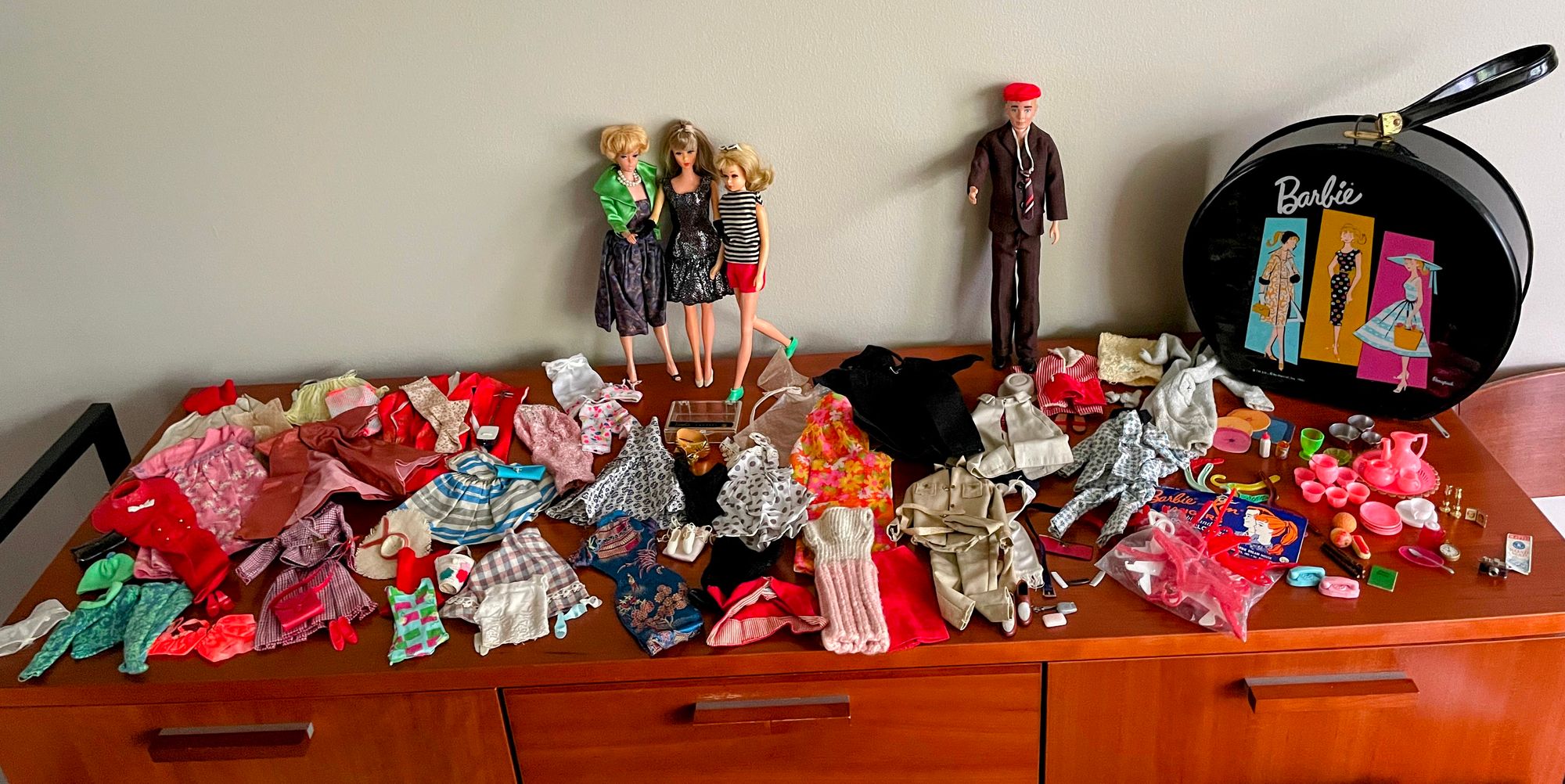"You can be anything!" - Barbie
“You're Always Dressed Right in Barbie!” - Mattel
With the release of the Barbie movie, I find myself thinking about my relationship with that iconic doll. Not typical of my Holocaust-survivor, refugee mother, she bought me a Barbie doll in the mid-1960s, just a few years after it came out, when I had outgrown my baby dolls.
My mother had an uneven and unpredictable relationship to “Americanization,” and I didn’t always receive the current trendy toys or clothes. After getting the “bubble hairdo” Barbie, I subsequently was gifted Ken and Skipper, another Barbie with long, straight hair, along with that original cardboard dream house (only four flat, cardboard pillows remain), and a reasonable selection of their clothes.
I played with my Barbie gear off and on. I was gifted a hand-crocheted wedding dress by a friend of my grandmother, and there were questionable attempts by me to create pieces of clothing. While it wasn’t my favorite group of toys to occupy my time, I clearly thought it important to save my Barbie items — a round suitcase, all the dolls, the clothes, some unrelated dishes I used with them, a ceramic television I made.
There’s been an ongoing conversation for practically all of Barbie’s existence about whether Barbie is sexist and promotes an unhealthy body image. The website Kveller says: “It’s strange to think of Barbie as a doll that righted a sexist wrong … Ruth Handler created a doll that was meant to let little girls imagine a future that wasn’t solely limited to being a mother, but a working woman. She was a nurse. An astronaut. A teacher. And in the years since her invention, she’s never gotten married, never had kids.”
That is what Ruth Handler intended — which I never knew before and certainly appreciate now — but the dominant, sexist culture ignored her back then and cast Barbie in the patriarchal norm. This is the body image to which girls should aspire.
My own take on Barbie during my burgeoning high-school feminism was to criticize Barbie’s appearance as conforming to and encouraging those sexist norms for women’s bodies — growing up a Jewish girl with frizzy hair and a big nose who didn’t dress like the cool girls did, I could not relate to Barbie at all. I focused on that sexist image, as opposed to considering her more liberated lifestyle.
All my Barbie stuff has lived in a box for decades, brought home just now to peruse the stash. I have kept that stuff for all these years for an unexplainable reason — perhaps because it represents one of my mother’s moments of wanting her daughter to fit in as a real American, rather than the different child of immigrants.
Arlene looks forward to seeing the Barbie movie and maybe bringing the bubble hairdo doll to sit with her.

Comments
Sign in or become a Nu?Detroit member to join the conversation.
Just enter your email below to get a log in link.